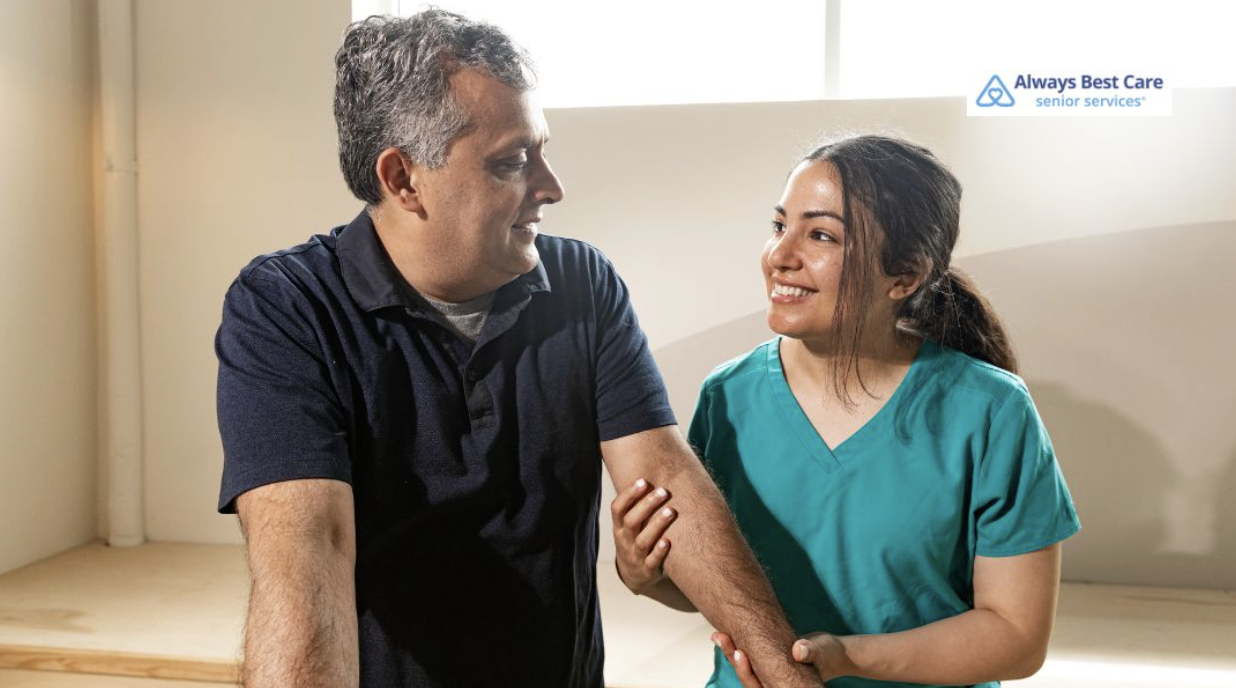High Blood Pressure in Seniors: What You Need to Know

Getting older brings wisdom, experience, and, unfortunately, a higher risk of high blood pressure. Many seniors face this common condition, but understanding its causes, risks, and management can make a big difference in their health.
This American Heart Month, we’ll break down everything you need to know about high blood pressure in seniors and how to keep it under control.
Table of Contents
What You Need to Know About Hypertension
Hypertension, or high blood pressure, is a common but serious condition that affects blood flow. It occurs when the force of blood against the artery walls is consistently too high, putting extra strain on the heart and blood vessels. Because hypertension often has no noticeable symptoms, many people are unaware they have it until it leads to complications.
High blood pressure increases the risk of heart disease, stroke, kidney failure, and cognitive decline in seniors. A normal blood pressure reading is around 120/80 mmHg, while anything above 130/80 mmHg is considered high.
Common Causes of High Blood Pressure in Seniors
Aging naturally leads to changes in the cardiovascular system, making high blood pressure more common in seniors. As arteries lose elasticity, the heart must work harder to circulate blood, leading to increased pressure. Other contributing factors include excessive salt intake, a sedentary lifestyle, obesity, and dehydration.
Chronic conditions like diabetes, kidney disease, and high cholesterol can also contribute to hypertension. Stress, certain medications, and excessive alcohol or caffeine consumption may elevate blood pressure levels.
Identifying these factors and making necessary adjustments can help seniors manage their blood pressure effectively. Always Best Care supports seniors with personalized care plans encouraging healthier habits and better blood pressure management.
The Consequences of Ignoring Hypertension
Uncontrolled hypertension can lead to severe health complications, particularly for seniors. One of the biggest risks is heart disease, as the increased pressure forces the heart to work harder, which can result in heart failure or a heart attack. Stroke is another major concern, as high blood pressure weakens blood vessels and increases the likelihood of blockages or ruptures in the brain.
Kidney function is also affected by long-term hypertension, potentially leading to kidney failure. High blood pressure has been linked to cognitive decline and an increased risk of dementia.
Steps to Control and Prevent High Blood Pressure
Preventing and managing high blood pressure requires a combination of healthy habits and regular monitoring. Always Best Care provides personalized support to seniors, helping them stay consistent with their health goals and maintain a heart-healthy lifestyle.
Medication Options and Alternatives for Seniors
Doctors may prescribe different types of medications to help manage high blood pressure, including diuretics to remove excess fluid, beta-blockers to slow the heart rate, and calcium channel blockers to relax blood vessels. Each medication works differently, and some seniors may need a combination of treatments for optimal results.
In addition to medication, lifestyle changes such as diet modifications, increased physical activity, and stress management can help reduce reliance on prescriptions. Always Best Care offers medication reminders and assistance, ensuring seniors take their prescriptions as prescribed while also supporting non-medication approaches for overall wellness.
The Impact of Nutrition on Blood Pressure
What seniors eat has a direct impact on blood pressure levels. A diet high in processed foods and sodium can lead to elevated blood pressure, while a heart-healthy diet rich in fresh fruits, vegetables, whole grains, and lean proteins helps regulate it. Potassium-rich foods like bananas, spinach, and beans can counteract the effects of sodium and support healthy circulation.
Reducing sugar and unhealthy fats while staying hydrated promotes better heart health. A well-balanced diet is a powerful tool in managing hypertension. Always Best Care assists seniors with meal planning and preparation, ensuring they have access to nutritious foods that support healthy blood pressure.
Physical Activity for Better Heart Health
Regular physical activity strengthens the heart, improves circulation, and helps regulate blood pressure. Low-impact exercises like walking, swimming, and stretching are great options for seniors, as they support cardiovascular health without putting excessive strain on the body. Light resistance training and yoga can also contribute to better blood flow and flexibility.
Consistency is more important than intensity—moving regularly throughout the day can have a lasting impact on blood pressure control. Always Best Care helps seniors stay active by providing encouragement, assistance, and recommendations for safe, appropriate exercise routines.
Stress and Its Effect on Blood Pressure
Chronic stress can lead to persistent high blood pressure by triggering the release of stress hormones that tighten blood vessels. Managing stress is essential for maintaining heart health. Simple practices like deep breathing, meditation, spending time with loved ones, or engaging in relaxing hobbies can help lower stress levels.
Getting enough sleep is another key factor in reducing hypertension risks. A structured daily routine, mindfulness exercises, and maintaining a peaceful environment can make a big difference. Always Best Care helps seniors create stress-free routines that support relaxation and overall well-being.
Tracking Your Blood Pressure for Long-Term Health
Monitoring blood pressure regularly is one of the best ways to prevent complications from hypertension. Keeping a log of daily or weekly readings allows seniors and their doctors to track progress and make necessary adjustments to treatment plans. Readings should be taken at the same time each day for consistency.
Routine monitoring can help detect issues early and ensure that medications and lifestyle changes work effectively. For seniors who need assistance, Always Best Care provides support with tracking blood pressure, scheduling medical check-ups, and maintaining a proactive approach to heart health.
Don’t Let Hypertension Take Over Your Life: Always Best Care Can Help!
Managing hypertension requires consistency and support. An in-home caregiver from Always Best Care can assist with meal preparation, encourage physical activity, and help manage medications to keep blood pressure under control. Take charge of your heart health this American Heart Month and beyond.
Contact Always Best Care of Spring at (832) 585-1941 to learn more and schedule your free consultation.





